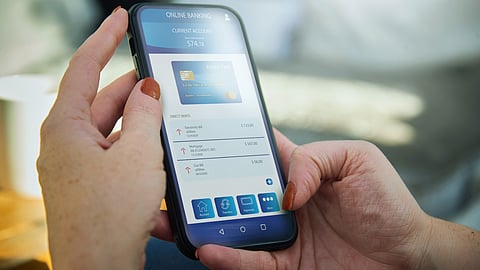Smartphone thefts surge in SA as criminals target banking apps
Key topics
- Criminals now steal phones to access banking apps, not just to resell.
- South Africa sees 189 phone thefts daily, mostly in Gauteng.
- SIM swap fraud is rising, exploiting loopholes in number portability.
Sign up for your early morning brew of the BizNews Insider to keep you up to speed with the content that matters. The newsletter will land in your inbox at 5:30am weekdays. Register here.
The seventh BizNews Conference, BNC#7, is to be held in Hermanus from March 11 to 13, 2025. The 2025 BizNews Conference is designed to provide an excellent opportunity for members of the BizNews community to interact directly with the keynote speakers, old (and new) friends from previous BNC events – and to interact with members of the BizNews team. Register for BNC#7 here.
If you prefer WhatsApp for updates, sign up to the BizNews channel here.
Nearly 200 phones are stolen daily in South Africa, and KnowBe4 Africa has warned that criminals are increasingly targeting smartphones due to the rise of features like mobile banking apps.
Speaking to Cape Talk, senior vice president for content strategy and evangelist at KnowBe4 Africa Anna Collard warned that criminals are no longer stealing smartphones just to resell them.
"It definitely has pivoted towards a sort of convergence of not just stealing something because they might sell it underground, but actually stealing it for the purpose of gaining access to our valuables on the device," she said.
By this, Collard referred to mobile banking apps and other sensitive information that may be stored on an individual's smartphone.
She also warned that many criminals will resort to violence when devices are locked with biometrics or pins to get users to unlock their phones to access their banking apps.
"On the one hand it's fantastic to see that South African consumers are more and more embracing digital technology, but there's two sides to the coin. With that comes increased vulnerability who want to take advantage of it," said Collard.
The 2025 KnowBe4 African Cybersecurity and Awareness Report urges South Africans to exercise caution when using smartphone banking apps.
The firm conducted a survey in September 2024, polling hundreds of African residents aged between 30 and 60, including in South Africa.
It found that mobile access to financial services had spiked, with 95% of participants saying they use mobile payments, mobile banking, or both.
South Africa had a higher-than-average mobile financial services usage rate of 50%, compared to the African average of 36%.
This has raised concerns over criminals targeting smartphone users to steal their devices and access sensitive information and mobile banking services.
This is particularly concerning, considering that the South African Police Service revealed in February 2024 that 189 phones are stolen daily in the country.
Gauteng accounts for the highest proportion of thefts, followed by the Western Cape, KwaZulu-Natal, and the Eastern Cape.
In October 2024, TransUnion released data revealing that nearly 5% of all attempted digital transactions originating in South Africa in the year's first half were suspected to be fraudulent.
It also referenced a survey in which 60% of respondents said they were recently targeted by fraud. Many of the attacks came from the telecommunications, financial, and online communities.
For reference, online communities include platforms like forums and online dating sites and apps.
According to TransUnion's data, attacks from the telecommunications sector were the most prevalent. It didn't provide details on how these attacks are carried out, but a potential contributor is SIM swap fraud.
In November 2024, the Communication Risk Information Centre (Comric) warned about a surge in SIM swap fraud in South Africa.
Vulnerabilities in SIM swap processes have enabled criminals to control victims' phone numbers and intercept sensitive communications, such as one-time PINs for online banking profiles.
The issue stems from a loophole, where some SIM swap processes require account holders to actively opt-out rather than opt-in for a SIM swap.
That means the swap will be approved if the customer doesn't respond to the SIM swap request within a certain timeframe.
This loophole exists because of a dispute lodged by Cell C in 2016 about number portability and how Vodacom and MTN handled SIM swap requests.
While this likely isn't an issue for many South Africans, it presents a major challenge for mobile customers who travel frequently.
If they are in a different time zone and receive the request while asleep, the SIM swap will be approved.
Consumers and businesses in the country are vulnerable to this type of fraud.
"This is a direct attack on the trust and security of our digital systems," said Comric CEO Advocate Thokozani Mvelase.
"The emotional and financial impact on victims is devastating, and the consequences ripple through families, businesses, and the broader economy."
Mvelase called for more vigilance in the space.
Read also:
- Social media's paralysing effect on active citizenship in South Africa – Solly Moeng
- South Africa sees 189 phone thefts daily, mostly in Gauteng.
- SIM swap fraud is rising, exploiting loopholes in number portability.
This article was first published by MyBroadband and is republished with permission

